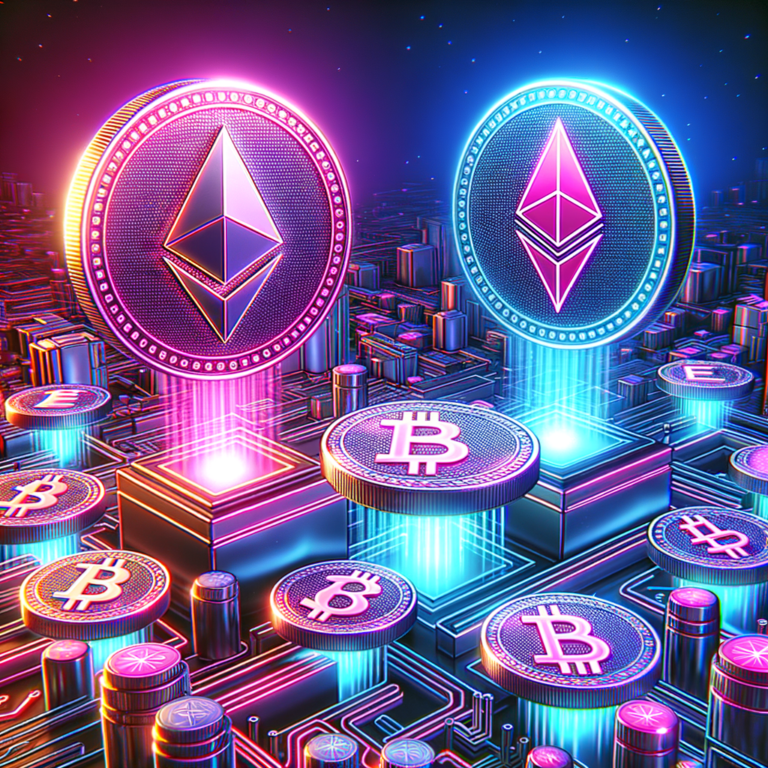Unlocking Potential: Blockchain Game Interoperability
As the digital world continues to evolve, blockchain technology has carved out a significant niche in the gaming industry, offering a decentralized platform where gamers can play, trade, and own assets securely. The concept of blockchain gaming is not just about playing but about creating a whole ecosystem where every action has a ripple effect. As these ecosystems grow, so does the importance of interoperability — the ability for different gaming platforms and blockchain systems to interact seamlessly. This article delves into the transformative potential of interoperability in blockchain gaming, exploring how it expands user experience and could reshape the future of the gaming industry.
Exploring the Basics of Blockchain Games
Blockchain games differ fundamentally from traditional video games through their use of blockchain technology to decentralize control and ownership. At their core, these games allow players to have true ownership of their in-game assets, such as characters, items, and even virtual lands, represented as non-fungible tokens (NFTs). This technology ensures that game data is immutable and transparent, maintained across a distributed ledger. Moreover, blockchain games often incorporate play-to-earn models, where players can earn cryptocurrency through game activities, providing a financial incentive to play and engage with the game’s ecosystem. Such games are not just entertainment; they are a new way of integrating economic and social interactions in a digital space.
The Rise of Interoperability in Gaming
Interoperability in the context of blockchain gaming refers to the ability of different blockchain-based games to share assets and information, thereby creating a connected and expansive gaming universe. This concept has gained traction as developers and players alike see the benefit of utilizing assets across multiple games and platforms. The rise of interoperable platforms can be attributed to the increasing demand for more integrated gaming experiences and the natural evolution of blockchain as a technology designed to enhance connectivity and efficiency. As more developers embrace interoperable standards, players find themselves at the cusp of enjoying a more diverse and rich gaming environment.
Key Benefits of Game Interoperability
One of the primary benefits of interoperability in blockchain games is the enhanced value and utility of in-game assets. When assets can be used across multiple games, they inherently increase in value, utility, and appeal. This not only enriches the player’s experience but also bolsters the game’s economy. Additionally, interoperability promotes a larger, more vibrant community as players from different games interact and collaborate. This can lead to a more dynamic and sustained engagement across platforms. Furthermore, developers can benefit from reduced barriers to entry as assets and tools can be shared across ecosystems, reducing development time and costs.
Challenges Facing Blockchain Game Interoperability
Despite the promising benefits, significant challenges remain in achieving seamless interoperability across blockchain games. Technical barriers, such as differing blockchain protocols and standards, can impede the seamless exchange of assets. There are also concerns about security risks associated with interconnecting different gaming ecosystems, which could potentially expose them to hacks and exploits. Furthermore, regulatory and compliance issues could complicate the integration of gaming platforms across different jurisdictions. Finally, there is the challenge of achieving a consensus among stakeholders who might have competing interests or visions for the development of interoperable gaming environments.
Technological Solutions for Interoperability
To tackle these challenges, various technological solutions have been proposed and implemented. Cross-chain technology, such as atomic swaps and blockchain bridges, facilitates the transfer of assets and information between different blockchain networks. Smart contracts play a crucial role by automating transactions and ensuring compliance with the rules governing asset transfers. Additionally, standards like the ERC-1155 token standard have been developed to enable a single contract to represent multiple assets from various games, which is a step towards simplifying integration and interaction between different gaming ecosystems.

